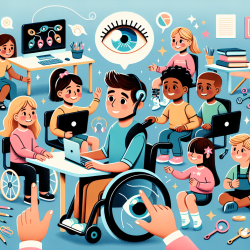Introduction
In the realm of special education and online therapy, practitioners often encounter diverse populations, including refugees and asylum seekers. These groups face unique challenges that can impact their health and well-being. A recent study titled Knowledge of legal rights as a factor of refugee and asylum seekers’ health status: a qualitative study provides valuable insights into how legal knowledge can influence health outcomes for these vulnerable populations.
Understanding the Research
The study conducted by Pilato et al. (2023) explores the connection between refugees' and asylum seekers' knowledge of their legal rights and their engagement with healthcare services. Conducted through semi-structured interviews with 24 participants in New York City, the research identifies several barriers to healthcare access, including knowledge gaps, mistrust, and pragmatic obstacles such as cost and insurance issues.
Key Findings
- Knowledge Gaps: Many participants were unaware of the public benefits they were eligible for, leading to low engagement with healthcare services.
- Mistrust: Misinformation and fear of jeopardizing immigration status prevented individuals from seeking necessary medical care.
- Pragmatic Barriers: High costs and lack of insurance further impeded access to healthcare.
Implications for Practitioners
For practitioners working with refugees and asylum seekers, understanding these barriers is crucial. Here are some strategies to improve engagement and health outcomes:
- Enhance Legal Knowledge: Practitioners should familiarize themselves with the legal rights and public benefits available to refugees and asylum seekers. This knowledge can empower them to guide clients effectively.
- Build Trust: Establishing trust is essential. Practitioners can achieve this by providing clear, accurate information and demonstrating cultural sensitivity.
- Utilize Digital Tools: The study suggests leveraging digital technologies to disseminate information about legal rights and healthcare access. Practitioners can recommend reliable digital resources to clients.
Encouraging Further Research
While the study provides valuable insights, further research is needed to explore innovative solutions for improving healthcare access among refugees and asylum seekers. Practitioners are encouraged to engage in ongoing learning and research to stay informed about best practices in this area.
Conclusion
The intersection of legal knowledge and healthcare access is a critical area for practitioners working with refugees and asylum seekers. By understanding the barriers identified in this study and implementing the suggested strategies, practitioners can enhance their skills and contribute to better health outcomes for these vulnerable populations.
To read the original research paper, please follow this link: Knowledge of legal rights as a factor of refugee and asylum seekers’ health status: a qualitative study.










